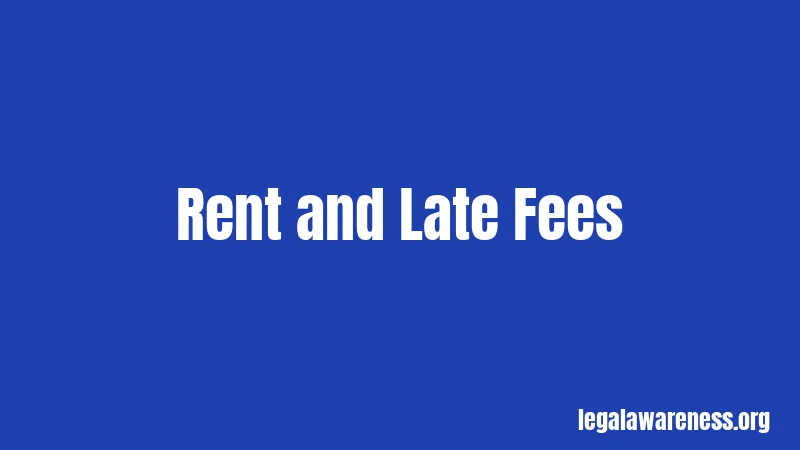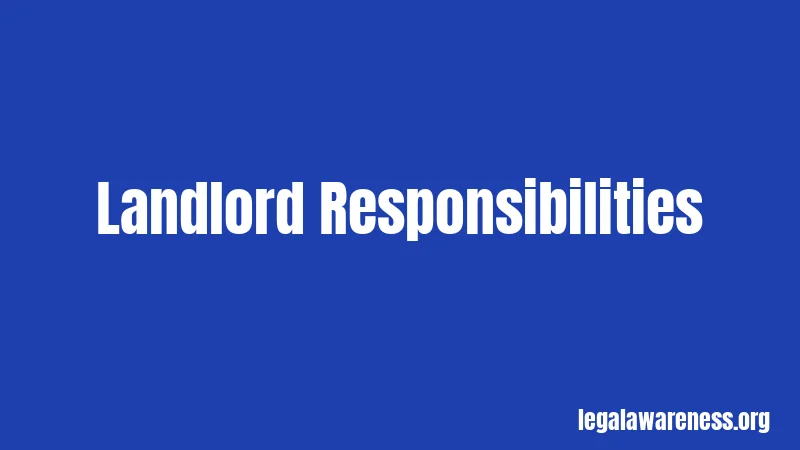Missouri Landlord Laws in 2026: What Renters & Owners Really Need to Know
Most people have no idea how specific Missouri’s landlord laws really are. Seriously. A lot of landlords are shocked when they discover they’re breaking the law, even when they think they’re doing everything right. The same goes for renters—you might not realize what rights you actually have.
Here’s the thing: Missouri is considered landlord-friendly compared to states like California or New York. But that doesn’t mean landlords can do whatever they want. There are specific rules, and if you mess them up? You could end up paying thousands in penalties. Let’s break down everything you need to know.
What Are Missouri Landlord Laws?

Missouri landlord laws are rules that explain what landlords and renters can and can’t do. These laws cover everything from how security deposits work to how evictions happen. They protect both sides—the person who owns the property and the person who rents it.
Think of it like a traffic rulebook. Pretty straightforward. Both drivers need to know the rules to avoid crashes (and lawsuits).
The main laws are found in Missouri Revised Statutes Chapter 441 and Chapter 535. But here’s what’s interesting: Missouri doesn’t have rent control. None. That means landlords can raise rent by any amount they want. However—and this is where many landlords slip up—they still have to follow pretty strict rules about everything else.
Security Deposits: The Most Common Mistake
Okay, pause. Read this carefully. Security deposits cause more problems than almost anything else in Missouri rentals.
Here’s what the law says: a landlord can’t charge more than two months’ rent for a security deposit. So if rent is $1,000, the maximum deposit is $2,000. Pretty simple, right? Except landlords break this rule constantly.
But that’s just the beginning. The real headache comes when it’s time to return the deposit.
After a tenant moves out, you have 30 days to return the security deposit. If you keep money for damages, you must give the tenant an itemized list. And when I say itemized, I mean specific. Not “cleaning: $200.” Instead, you’d write: “Carpet cleaning, living room: $120 (receipt attached) Wall repair, kitchen: $85 (receipt attached).”
Here’s where it gets expensive: if you wrongfully withhold any of the deposit, the tenant can sue you for twice the amount you wrongfully withheld. One landlord in Kansas City withheld $800 without an itemized list. The tenant sued and won $1,600 in damages. Plus attorney fees. That $800 mistake ended up costing over $3,700.
I looked this up recently. The rules surprised me. They might surprise you too.
The tenant also has the right to be present during the move-out inspection. The landlord must give written notice of the inspection at least 7 days ahead. Many landlords skip this step. Bad move. If you inspect without telling the tenant, they can argue they never had a chance to dispute the damages. Guess who wins that argument? Spoiler alert: not the landlord.
Rent and Late Fees

Wondering how much you can charge for late fees? Good question. Missouri doesn’t have a cap on how much late fees can be. At all.
However—and this is important—judges won’t enforce unreasonable fees. Most judges think fees between 4-5% of the monthly rent are reasonable. So if rent is $1,000, a $40-50 late fee makes sense. A $500 late fee? A judge will probably throw that out.
Rent is due on whatever day the landlord and tenant agree to. There’s no state-mandated grace period. If the lease says rent is due on the 1st and a tenant pays on the 5th, they’re late. It doesn’t matter if the landlord feels “generous.”
Here’s the landlord-friendly part: landlords can file for eviction immediately if rent isn’t paid. No notice required. Other states require 3-day or 5-day notices first. Not Missouri. That’s a huge advantage for property owners.
But hold on. There’s more to know about evictions.
Evictions in Missouri: The Process
Let’s talk about what happens when tenants don’t pay rent or break the lease.
For nonpayment of rent, the landlord can file an eviction (called an “Unlawful Detainer”) immediately. No notice period. That’s the most landlord-friendly part of Missouri law.
For lease violations, it’s different. The landlord must issue a 10-Day Notice to Cure or Quit. This means the tenant has 10 days to fix the problem or move out. If they don’t fix it in 10 days, then the landlord can file for eviction.
Some violations are serious enough to bypass the 10-day notice. These include: prostitution, illegal gambling, possession or sale of drugs, or other illegal activity on the property. For these, the landlord can issue a 10-Day Notice to Quit (no chance to fix it) and then file for eviction.
For at-will tenants (month-to-month), the landlord must give at least 30 days of written notice before eviction.
Here’s where it gets interesting: landlords cannot evict tenants in retaliation for reporting housing code violations. But—and this is a big but—the tenant’s protection against retaliation is much weaker in Missouri than in other states. Retaliation can’t be raised as a defense in most eviction proceedings. So while it’s illegal, it’s hard to actually prove.
Honestly, this is the part most people miss. The protection sounds strong, but it’s actually pretty weak.
Landlord Responsibilities

Landlords have to do certain things. No exceptions.
First, the property must be habitable before move-in. That means working plumbing, heat, electricity, and no serious pest problems. Missouri’s standards for habitability are actually lower than many states. But they still exist.
Second, landlords must make repairs within a “reasonable” time after the tenant reports an issue. “Reasonable” is vague, which creates problems. Some judges think 7 days is reasonable. Others think 14 days. The point is: don’t ignore repair requests for months.
If the landlord doesn’t make repairs, the tenant can sue for the cost of repairs. They can also take legal action to force the landlord to fix the problem. In some cases, the tenant can make minor repairs and deduct the cost from rent. They can also withhold rent, but usually only by paying it into a court escrow account.
Third, landlords must not cut off utilities. Ever. Even if the tenant owes money. That’s illegal.
Fourth, if the landlord knows the rental was used to produce methamphetamine, they must disclose this to all prospective tenants. No exceptions.
Finally, if the property is sold, the new owner must provide tenants with written notice, contact information, and a copy of the deed.
Tenant Responsibilities
Tenants have duties too. They’re not off the hook.
Tenants must pay rent on time. They must keep the unit in decent condition (normal wear and tear is okay, but they can’t intentionally damage it). They must dispose of trash properly. They must not unreasonably abuse plumbing, heating, or electrical systems. And they must not allow illegal activity on the property.
Tenants also cannot sublet or add occupants without the landlord’s written permission. That’s a lease violation, and it can lead to eviction.
Rent Increases: No Limits Whatsoever
Missouri has zero rent control laws. This is huge for landlords but rough for tenants.
Landlords can raise rent by any amount. $100 more per month? Legal. $500 more per month? Also legal. There’s absolutely no cap.
However, landlords can’t raise rent during the lease period unless the lease allows it. Once the lease ends or if it’s a month-to-month lease, the landlord can increase rent.
The landlord must give advance notice before raising rent. Usually 30-60 days written notice, depending on the lease. If proper notice isn’t given, the tenant isn’t obligated to pay the increase until they get it.
Market conditions tend to keep most increases reasonable. Landlords know that extreme hikes cause tenants to move, which creates vacancy costs. But without rent control laws, it’s technically possible.
Discrimination and Fair Housing
This is where federal law and Missouri law work together.
Landlords cannot discriminate based on: race, color, religion, national origin, sex, disability, or family status (having children under 18). Sexual harassment is also prohibited.
Landlords cannot refuse to rent, charge higher rent, or offer different terms to people in these protected classes.
If a landlord’s practice has a discriminatory effect, it’s illegal. For example, if the landlord runs background checks on applicants of one race but not others, that’s discrimination even if the landlord didn’t intend it.
For applicants with disabilities, landlords must make reasonable accommodations. This might mean allowing service animals or permitting modifications like grab bars in bathrooms (at the tenant’s expense).
Tenants who experience discrimination can file a complaint with HUD or the Missouri Commission on Human Rights within one year of the incident. Landlords found guilty can face fines, damages, and court orders.
Not sure what counts as a violation? When in doubt, treat all applicants the same way. Use the same screening process. Ask the same questions. Document everything.
Tenant Screening and Applications
Missouri law doesn’t regulate much about tenant screening. This is another landlord-friendly aspect.
There’s no law against charging an application fee. There’s no law saying the fee has to be refundable. Landlords can charge whatever they think is reasonable.
Landlords can run background checks, but they must get the tenant’s written consent first. Background checks include credit reports, rental history, and criminal history.
Here’s the legal part: landlords can consider criminal history, but they must do it consistently and non-discriminatorily. If the landlord asks only certain applicants about criminal history, that’s discrimination.
Special Cases and Recent Changes
Stay with me here. There are a few special situations you should know about.
Squatters can claim something called “adverse possession.” This means if someone occupies your property openly and continuously for at least 10 years while paying property taxes, they might be able to claim legal ownership. This is rare, but it’s possible. If you suspect a squatter issue, talk to a lawyer immediately.
Military members have extra protections under the Servicemembers’ Civil Relief Act (SCRA). Active service members can terminate a lease under certain conditions with written notice. This law gives them flexibility that regular tenants don’t have.
Short-term rentals (under 30 days) and midterm rentals (several months to a year) have different rules in some cities and counties. Your city might require licenses or permits. Check with your local government before renting property short-term.
How to Handle Common Situations
Okay, let’s get practical. Here’s what you should actually do.
If you’re a landlord and a tenant doesn’t pay rent: Document everything. Take photos of the unit. Note the date rent wasn’t paid. Then file for eviction. Don’t try to handle it yourself (like changing locks). Use the court system. It’s faster than you think in Missouri.
If you’re a landlord collecting a security deposit: Get it in writing. Specify that it’s a security deposit, not rent. Keep it in a federally-insured bank account. Don’t mix it with your business funds. When the tenant moves out, take photos and video. Document the condition. If you make deductions, itemize them with receipts. Return the remaining deposit within 30 days.
If you’re a landlord and repairs are needed: Fix them fast. Don’t wait weeks. “Reasonable” usually means within 7-14 days. Failing to make repairs is one of the fastest ways to end up in court.
If you’re a tenant and the landlord refuses repairs: Send a written notice (email works). Document the problem with photos. If the landlord doesn’t respond within 7 days, consult a tenant rights organization or lawyer. You might have the right to break the lease or withhold rent.
If you’re a landlord and need to raise rent: Give proper notice. Be reasonable. Raising rent $100-200 on a $1,000 unit is normal. Raising it $500 might cause the tenant to leave, which creates vacancy costs and rehiring expenses.
Frequently Asked Questions
Can a landlord enter the rental without permission? Missouri law doesn’t specifically regulate landlord entry. However, the lease can include entry terms. Common practice is 24 hours’ written notice for non-emergencies. Emergencies (fire, flood, gas leak) don’t require notice.
What’s the difference between a security deposit and a pet deposit? Pet deposits aren’t considered security deposits under Missouri law. So they don’t get the same protections. Landlords don’t have to return pet deposits, and they don’t count toward the 2-month-rent limit.
Can a landlord shut off utilities if rent isn’t paid? No. This is illegal, even if the tenant owes money. Period. The landlord must use eviction. Cutting off utilities is a crime.
What happens if the landlord doesn’t return the security deposit within 30 days? The tenant can sue for twice the amount wrongfully withheld. Plus attorney fees and court costs. This is the most expensive mistake landlords make.
Can landlords charge any amount for late fees? Technically yes, but judges won’t enforce unreasonable fees. Stick to 4-5% of monthly rent. This keeps you safe.
Final Thoughts
Missouri landlord laws favor property owners more than most states. No rent control, streamlined evictions, and flexible rules on deposits. But—and this is important—there are specific rules that, when broken, cost landlords thousands in legal fees and damages.
The biggest takeaway? Document everything. Itemize deposits. Give proper notice. Follow the eviction process exactly. Treat all applicants the same. And when in doubt, talk to a lawyer. A few hundred dollars on legal advice today can save thousands in court costs tomorrow.
Now you know the basics. Stay informed, stay compliant, and when something feels off, look it up or ask a lawyer.
References
Missouri Revised Statutes Title 29 Chapter 441
Missouri Revised Statutes Chapter 535 (Evictions and Security Deposits)
Missouri Attorney General Landlord-Tenant Law Guide
Nolo: Guide to Landlord-Tenant Laws in Missouri
Missouri Commission on Human Rights – Fair Housing
Heartland Center for Jobs and Freedom – Missouri Tenant Rights
